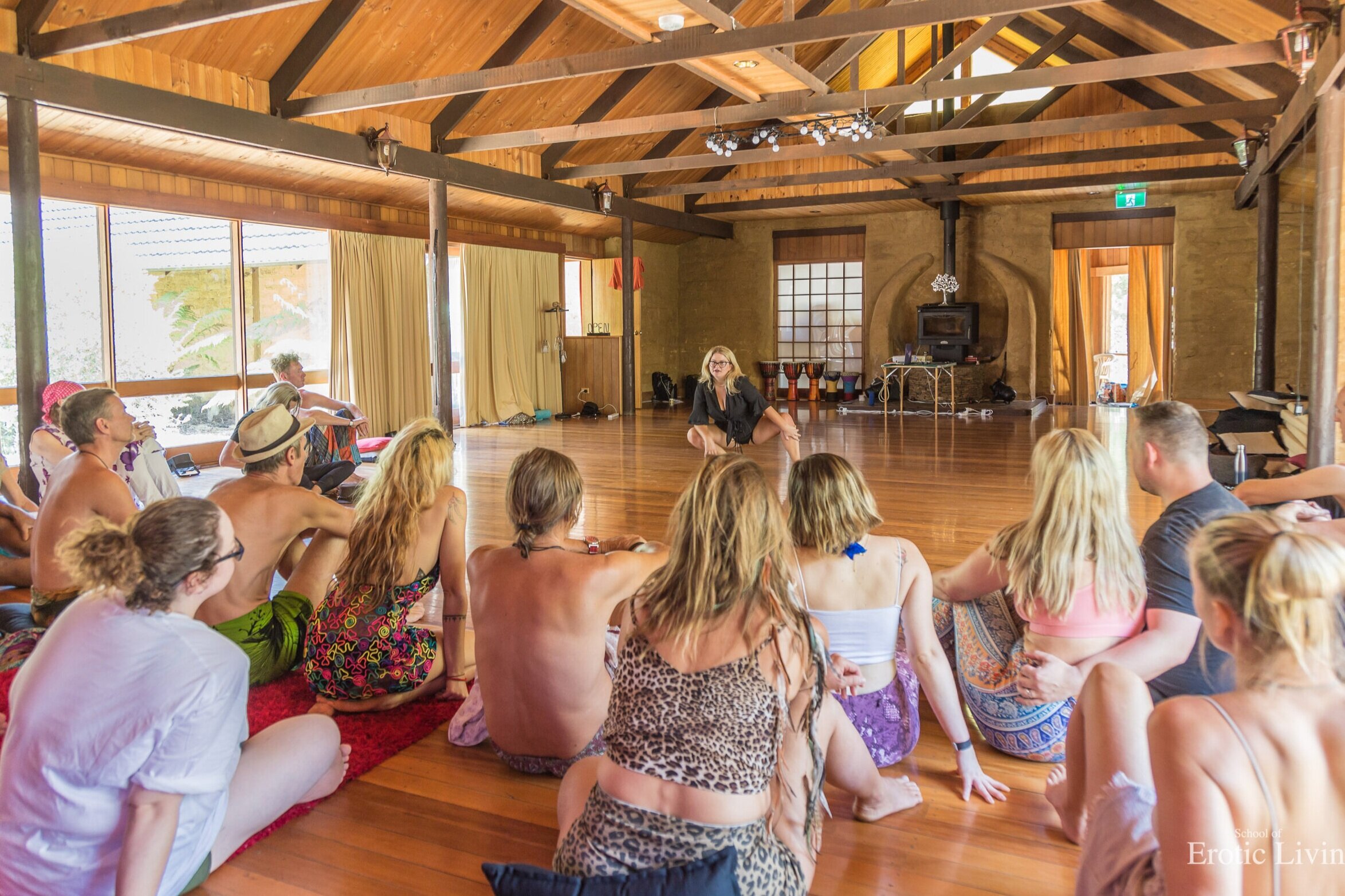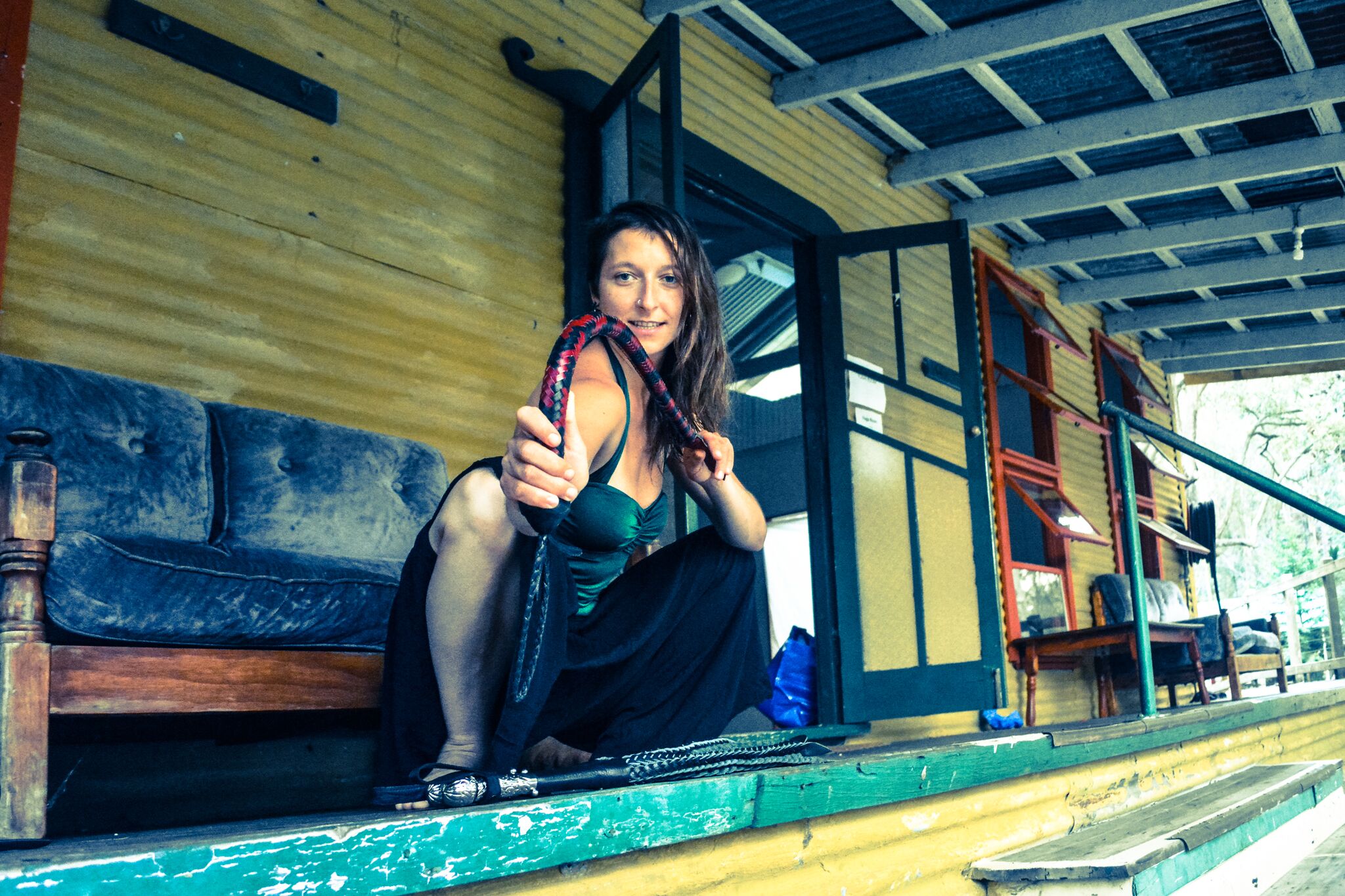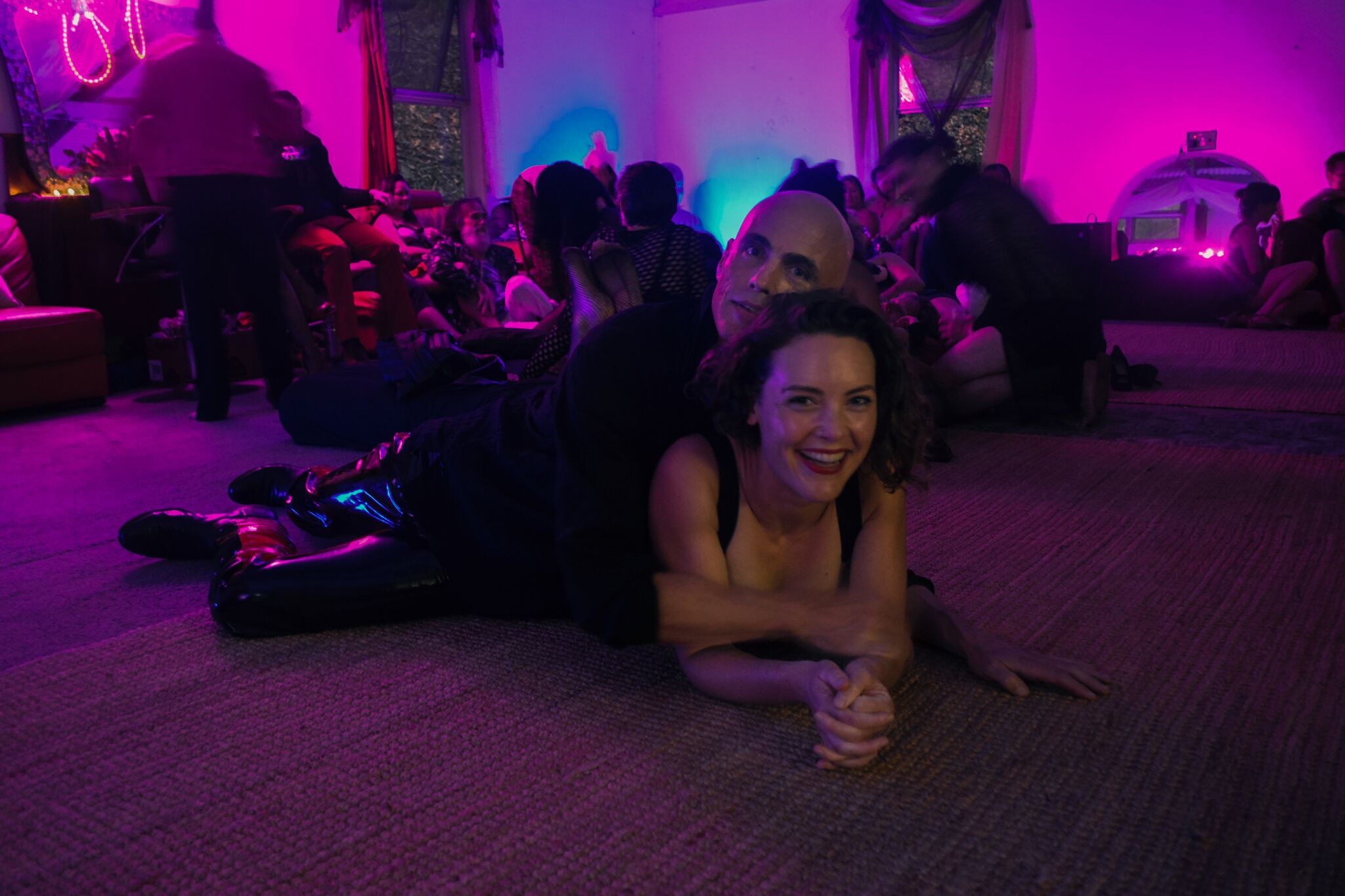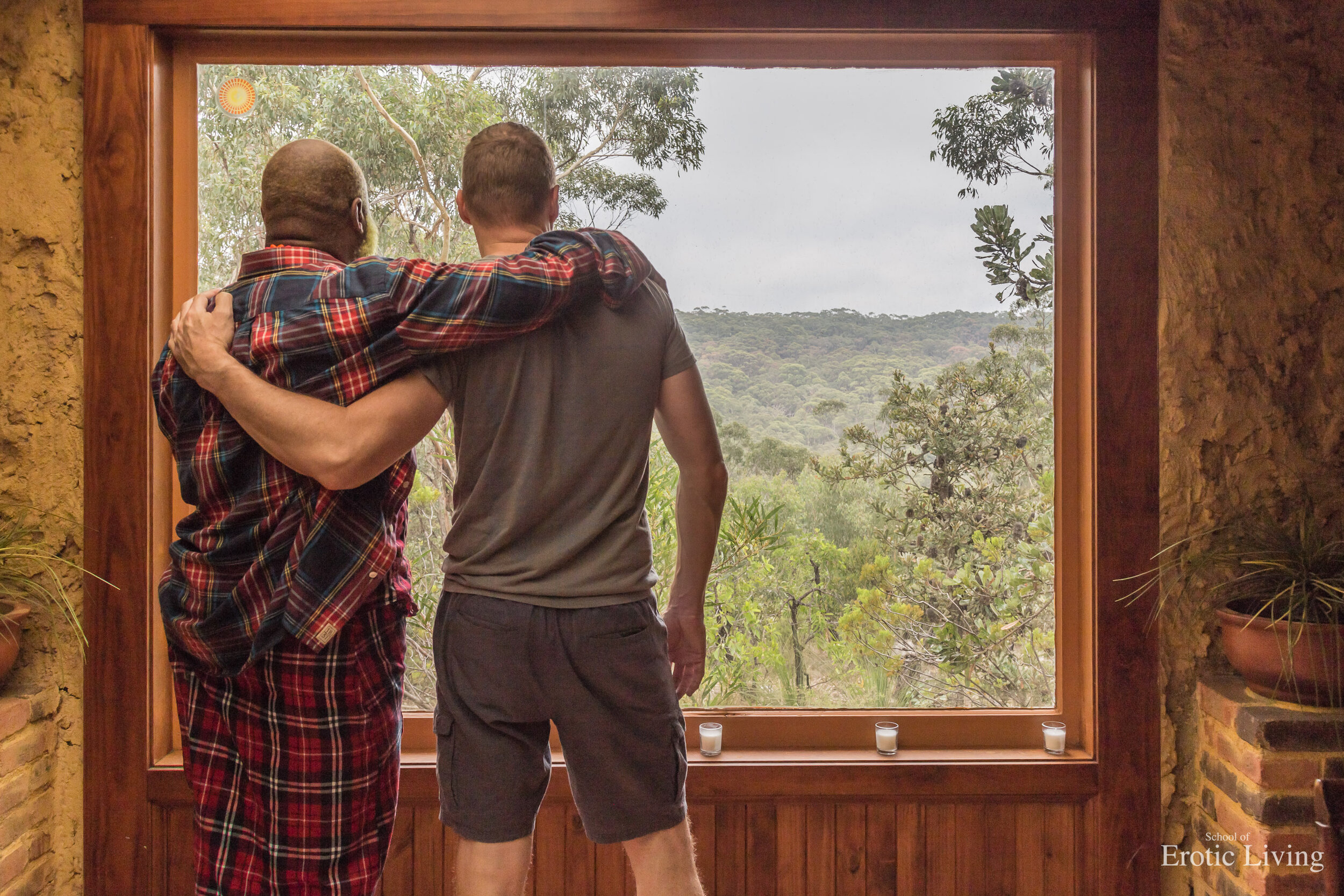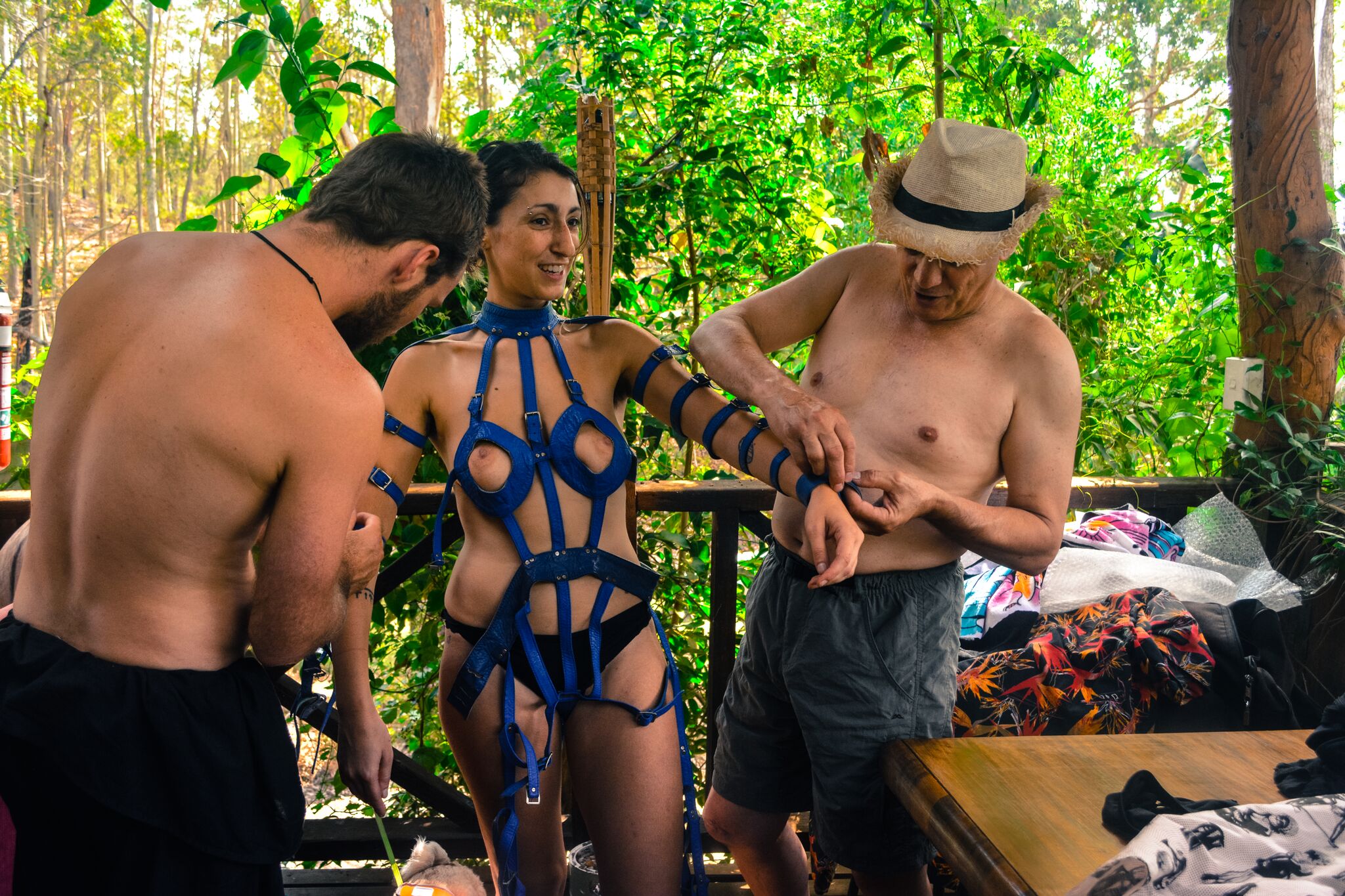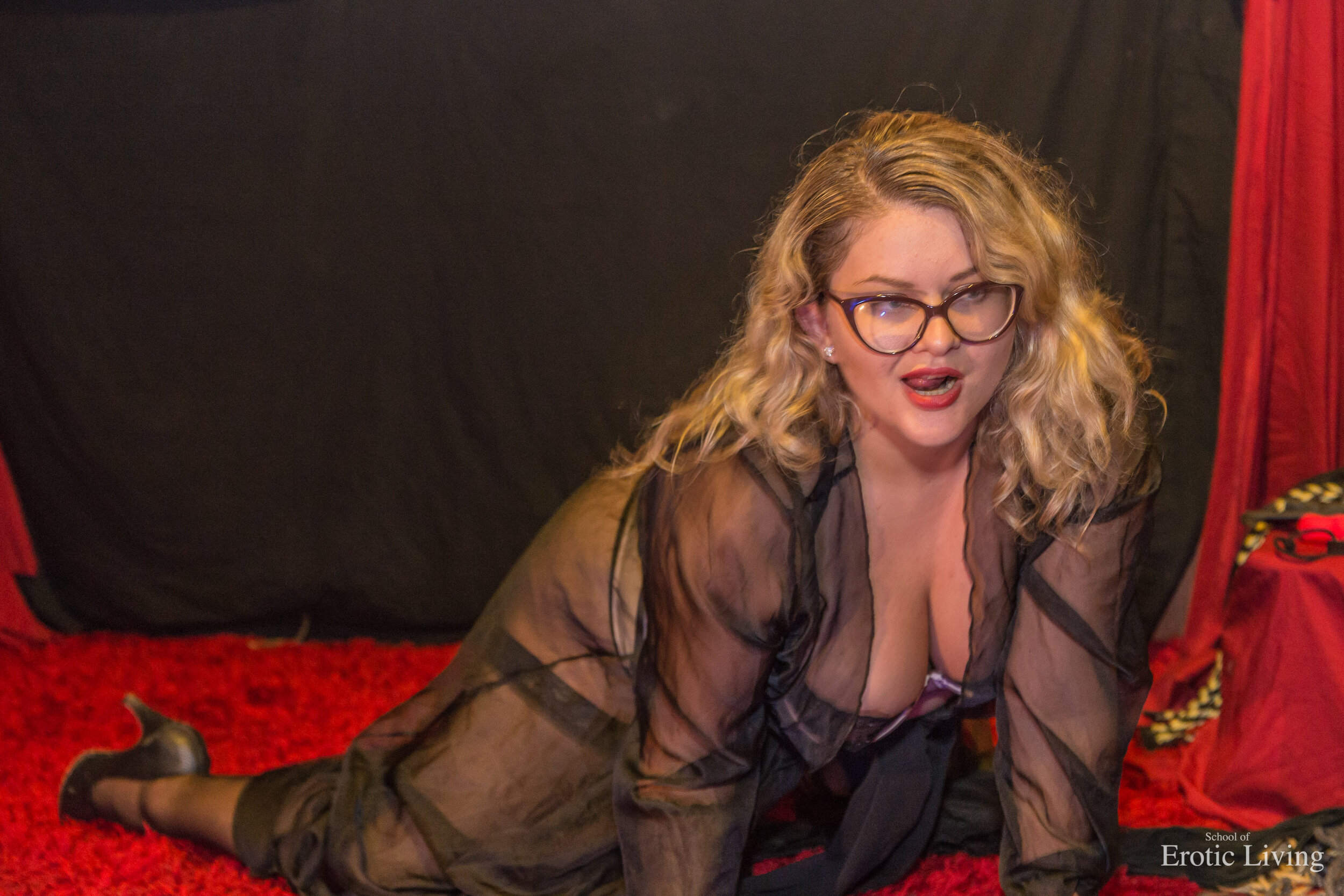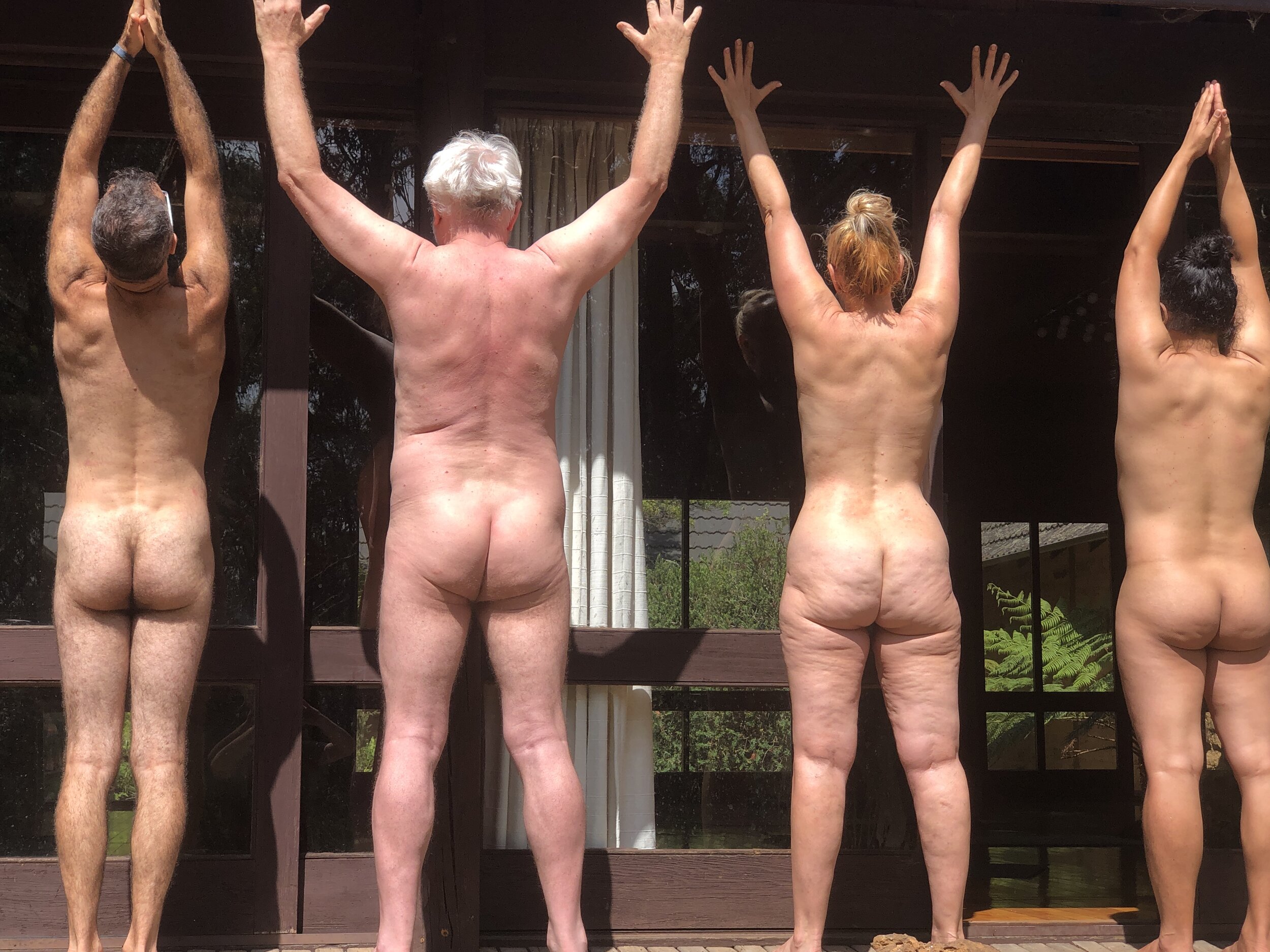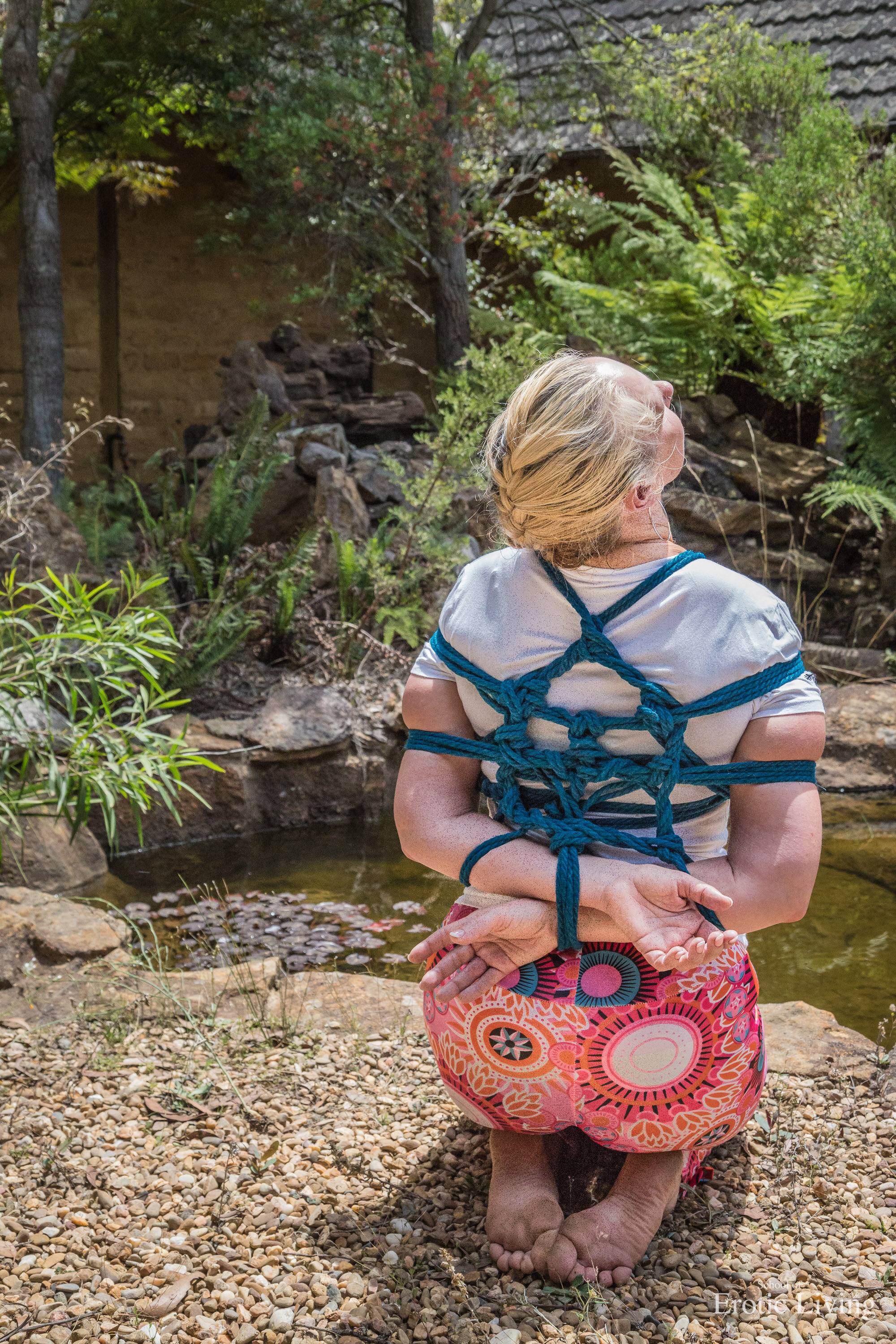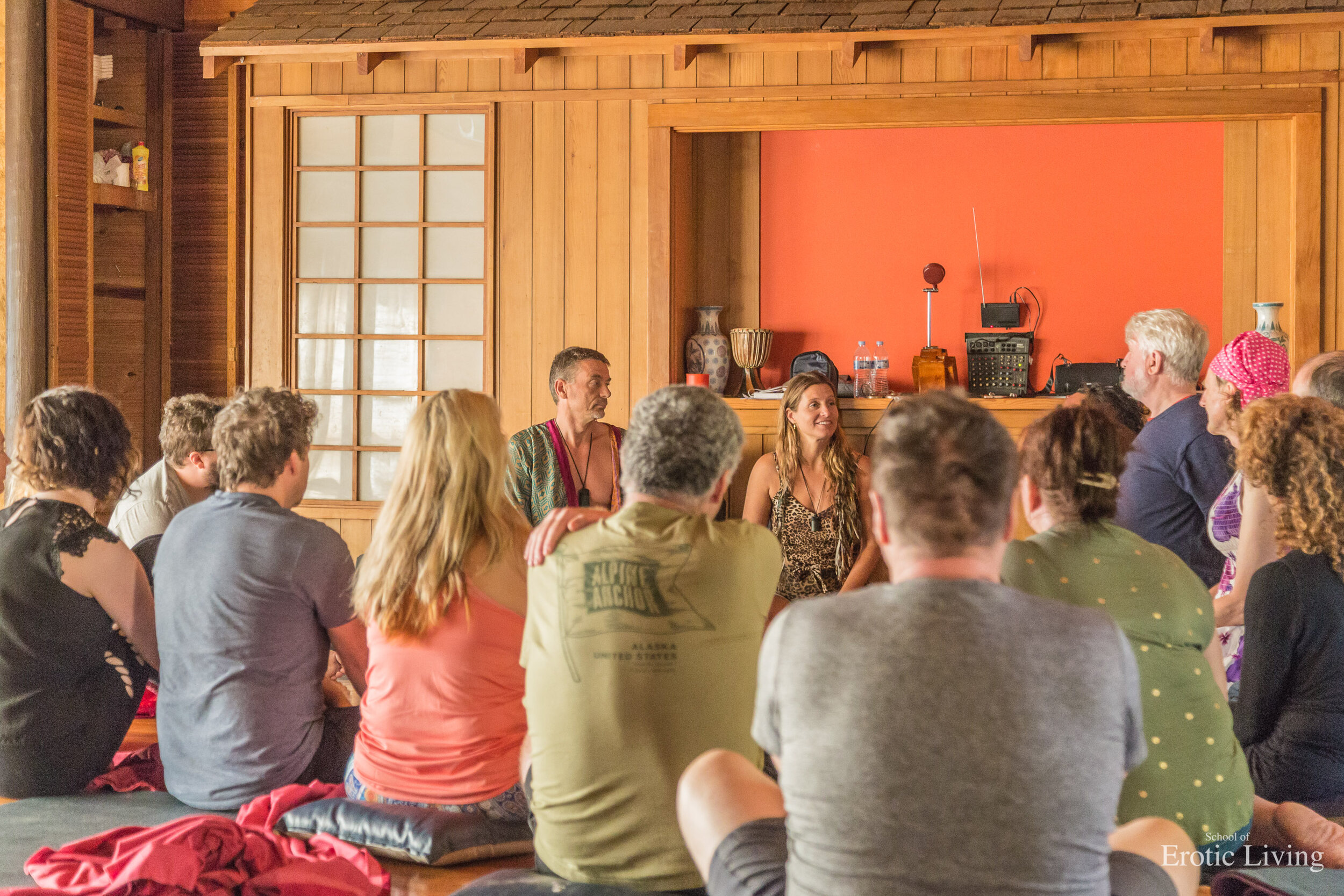As a symptom of our discomfort, we might try to laugh it off or dismiss it, make hasty judgments about practices that threaten us or excite us or that we simply don’t understand. Today in the west there seems to be more erotic freedom than ever before but therapists and educators in the field do not cease to tell us that when it comes to sex and intimacy, many of us still experience a great deal of shame, guilt, uncertainty and suffering.
For this reason, we believe that spaces where people can express their desires are today so important. Such spaces provide much needed possibilities for people to connect in ways that are generally not allowed in our culture and precious opportunities for people to re-discover their creativity and inventiveness. They are not the equivalent of sex parties or swingers’ clubs, because they include a great deal of education through experiential workshops, as well as offering other activities, such as bodywork, dance, singing, music, eating together, bushwalking, swimming and socialising without pressure.
What differentiates them is that they are spaces where erotic expression is allowed in the widest sense. Such spaces are safer than other ways of connecting with people, because there is a group accountability mechanism built into the structure. It is not only that anyone who violates consent is called to account, but that what happens is people really get to know one another.
But in my opinion the greatest value of such spaces is that they break down the culturally imposed barriers between our erotic interests and the rest of our lives. Our society puts a lot of judgement on those who enter these spaces, as if it would mean that they must not be committed partners, or that they are immature or otherwise untrustworthy. But the opposite is true. People who enter these spaces acknowledge that they have something more to learn about love and sexuality and see the value of doing so in the open light with others—just as with learning any other skill or interest. People not only have transformational experiences, but, more importantly, they learn valuable life lessons they would be unlikely to learn otherwise, for example, in terms of their partner-choices, their relationship patterns and how they interact socially and erotically.
Such spaces also present marvellous opportunities for the creation for empathy and compassion, when people open up and allow themselves to be seen and to be vulnerable. And with time they give us the courage actively to challenge the values of mainstream society and can even lead us to change our life's direction, (as happened to me).






